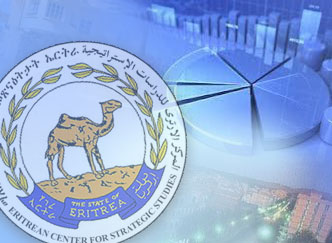June 18, 2016
STATEMENT BY H.E. MR. OSMAN SALEH, MINISTER FOR FOREIGN AFFAIRS OF THE STATE OF ERITREA, DURIG THE 32ND SESSION OF THE UNHRC
GENEVA, 14 JUNE 2016
 Mr. President,
Mr. President,
I wish to seize this opportunity to stress Eritrea’s continued engagement with the Human Rights Council with the hope that its aspirations for better and higher standards for the respect of human rights will be progressively achieved, despite the fact that the much anticipated full adherence by the Human Rights Council to the principles of objectivity, non-selectivity and non-politicization remains elusive. Much work has been done to advance human rights through the UPR mechanism, yet the proliferation of country mandates has become a cause of concern that continue to undermine the objectives of the Human Right Council which was established 10 years ago.
Yesterday’s comments by the various presidents of the human rights council since its existence highlighted the challenges faced by the Human Right Council in its mandate to promote human rights across all countries and regions. The decisions and directions of the Council are skewed in favor of the major players very often leading to politicization of human rights issues, an approach that effectively disbanded the Commission of Human Rights. Humanity would greatly benefit if we challenge each other on the effective application of the principles, ideals and practices without targeting countries on the basis of political consideration.
Mr. President,
Few days ago, the Commission of Inquiry on Eritrea, in a press conference claimed that it “has reasonable grounds to believe that crimes against humanity have been committed in Eritrea since 1991.” It is intriguing that it mandated itself to investigate violations since the independence of the country in 1991. It also claimed that it is not a judicial body, yet it went on to make extreme and unfounded charges with no solid and legal evidence to support its conclusion. I must say that the report does not reflect the reality of the country for a number of reasons. To name a few:
1.The release of the report to the mass media before the Council had the chance to consider the report constitutes a political campaign aimed at gaining political support for its recommendation to send the matter to the United Nations Security Council for referral to the ICC;
2. The gathering of information from “witnesses” organized by Ethiopia allows the latter to advance its propaganda against a country that it aims to destabilize. It is a country that occupies sovereign Eritrean territory and actively engages in waging hostile acts as demonstrated by the latest unprovoked military attack on 12 June 2016. The armed attack two days ago is timed with the release of the report, supposedly for maximum impact towards undermining the territorial integrity and sovereignty of Eritrea;
3. The dismissal of the submissions made by over 42,0000 Eritreans as irrelevant only highlights the bias of the COI in including information that did not confirm or fit to its one sided narrative of the situation in Eritrea. Sources of information from UN bodies, researchers, private companies and individuals with first-hand knowledge of the situation of the country were also disregarded; and more importantly
4. the report fails to reflect Eritrea’s serious engagement with the international community and steps taken to advance human rights through the UPR mechanism.
Mr. President,
The resolution that created the Commission of inquiry was tabled by a neighbouring state because of some bilateral issues not because for human rights consideration, serving as an African face for other countries with regime change agenda.
Since, the report of the Commission of Inquiry will be discussed next week, I would like to refer all interested members and stakeholders to Eritrea’s preliminary response issued last week, 8 June, during the press conference held by Eritrea. I would urge Council members to exercise caution in the consideration of the report that also regards occupation and sanctions as inconsequential to the full enjoyment of all human rights. Any analysis about internal and external situation of any country must be mindful of context, perspective and their ramifications.
Mr. President,
Advancing human rights in Eritrea is taking center stage, as the Government is embarking on a better and effective way of implementing the UPR recommendations that it accepted.
The efforts taken include,
• drawing a national action plan, mainstreaming human rights and building a cross sectoral body;
• signing a framework of cooperation with the UN in areas that include, development and promotion of social equality; social services for adequate standard of living; liberties; constitution; administration of justice and international cooperation;
• maintaining technical cooperation with the Office of the High Commissioner for Human Rights to strengthen the judicial system, to address the needs of the most vulnerable groups such as disabled persons, and to enhance access to water and hygiene;
• forging a common front with its neighboring states, AU, EU, UNODC, IOM and other institutions, to step up its fight against human trafficking and human smuggling, as well as illegal flow of migration;
• seeking technical support from UNODC in order to internalize the “Mandela Rules” for its penitentiary system;
• releasing of Djiboutian prisoners of war through the commendable mediation efforts of the Emir of Qatar; and
• pursuing a policy that stresses social justice to maintain peaceful, stable, secure and harmonious society in a region that suffers from sectarianism, radicalism and terrorism.
Mr. President,
I wish to assure the Council that Eritrea shall remain open and committed to constructive engagement to promote and protect human rights and fundamental freedoms and Eritrea will lend its hands to make this body more credible and relevant to all stakeholders.
Thank you



